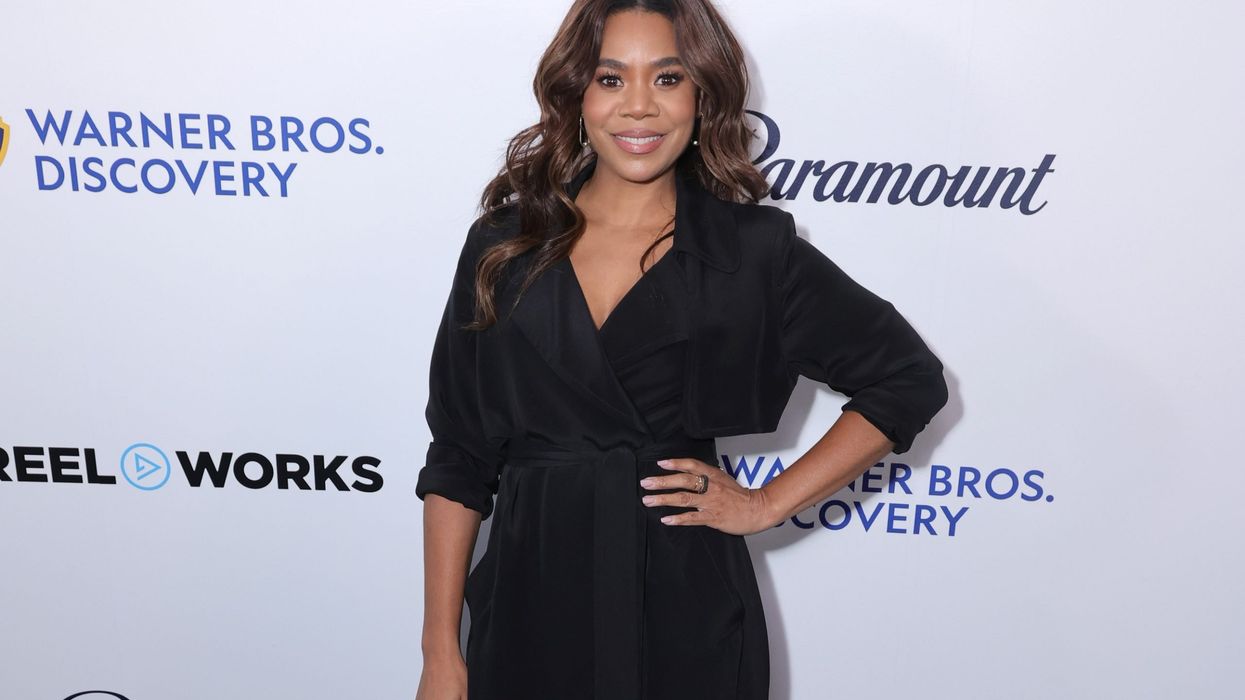American actor and comedian Regina Hall shared her reaction to Will Smith's apology for the Oscars slap incident.
According to People Magazine reports, during a red-carpet appearance for her upcoming movie 'Honk for Jesus. Save Your Soul,' Hall shared, "I think it's a tough thing and I know it's a difficult road." She added, "The first step is he apologized. How people see it, it's up to them ... I know that wasn't easy."
"Redemption." "The whole point is we can evolve from maybe where we are," Hall continued.
Hall, who co-starred with Jada Pinkett Smith, Smith's wife in the 2017 comedy 'Girls Trip', also co-hosted the Oscars in March alongside comedians Wanda Sykes and Amy Schumer, as per People reports.
During the Oscars 2022 ceremony, Smith punched presenter and comedian Chris Rock on the Dolby Theatre stage after he made a G.I. Jane joke about Jada Pinkett's baldness.
After the incident on July 29, Smith took to his Instagram handle and shared an emotional video explaining why he didn't apologise to Rock after accepting the best actor award for his performance in "King Richard" shortly after he slapped the comedian for making a joke about his wife Jada Pinkett Smith's short haircut.
"I was fogged out by that point," Smith said, explaining why it took so long to offer Rock an apology. "It's all fuzzy. I've reached out to Chris and the message that came back is that he's not ready to talk. And when he is, he will reach out."
Smith expressed his guilt for his actions, calling them "unacceptable." The actor has stated that he reacted violently because Rock's joke alluded to Pinkett Smith's hair loss due to alopecia. It's a struggle that Pinkett Smith has previously addressed publicly.
"That was one of the things about that moment. I just didn't realize," Smith reflects. "I wasn't thinking but many people got hurt in that moment. So I want to apologize to Chris' mother. I want to apologize to Chris' family. Specifically, Tony Rock. We had a great relationship. You know, Tony rock was my man and this is probably irreparable."
"I made a choice on my own, from my own experiences from my history with Chris. Jada had nothing to do [with it]," Smith said, before acknowledging the "heat" his wife and kids have taken.
Smith also addresses how his actions affected his fellow nominees towards the end of the video, saying, "I won because you voted for me."
"It really breaks my heart to have stolen and tarnished your moment," Smith said, pointing to Questlove's reaction, who took the Oscars stage right after the incident for winning best documentary for his project Summer of Soul." "Sorry isn't really sufficient."
He takes on what he would say to folks who looked up to him prior to the Oscars event as he concludes the video. Smith says he dislikes "when I let people down" and calls disappointing people "my central trauma."
"So it hurts. It hurts me psychologically and emotionally to know I didn't live up to people's image and impression of me," he continues, adding that he's "deeply remorseful" but trying to do so "without being ashamed" of himself. "I'm a human and I made a mistake, and I'm trying not to think of myself as a piece of shit."
"I would say to those people, I know it was confusing. I know it was shocking. But I promise you, I am deeply devoted and committed to putting light and love and joy into the world," Smith offers as his ending note. "And if you hang on, I promise we'll be able to be friends again."
After the incident, Smith has apologised three times in various forms.
The slap led to months of fallout for the Best Actor winner, who resigned from the Academy of Motion Picture Arts and Sciences and Smith was banned from appearing for 10 years.
Wanda Sykes during a May comedy-tour stop in Orlando, Florida, shared the moments from the ceremony as she was sitting in the audience. She stated, "I'm still traumatized. I can't talk about it. I get emotional," as per People.
The star continued, referring to how Smith remained seated during the ceremony before later winning the Best Actor award, "I couldn't believe he was still sitting there, like an a--h---." "Shouldn't you be sitting there with a lawyer or LAPD, motherf-----?"
Amy Schumer also shared her thoughts about the slap. She stated, "It was just a f---ing bummer."
"All I can say is that it was really sad, and I think it says so much about toxic masculinity. It was really upsetting," Schumer added.
(ANI)




